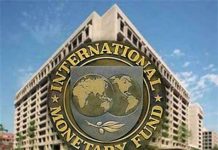
The Nigeria Customs Service (NCS) has officially announced the implementation of a temporary duty waiver on essential food imports, effective from July 15, 2024, to December 31, 2024. This move is part of the federal government’s effort to reduce soaring food prices and ease the burden on Nigerians facing high inflation.
The policy, which offers a 150-day duty-free window, allows for the duty-free importation of key staple foods including maize, husked brown rice, wheat, grain sorghum, millet, and beans. The initiative is aimed at lowering the costs of these essential commodities, which have been significantly impacted by the recent surge in food prices.
In a statement released on Wednesday by Abdullahi Maiwada, Chief Superintendent of Customs and National Public Relations Officer, the Customs Service provided a comprehensive outline of the waiver policy. Maiwada confirmed that while the policy came into effect on July 15, 2024, the announcement was delayed to finalize the necessary frameworks and guidelines for its execution, which will now run until the end of December.
“Drawing from Presidential directives aimed at alleviating the hardship faced by Nigerians due to the high prices of essential food items, the Nigeria Customs Service is pleased to announce that His Excellency, President Bola Ahmed Tinubu, through the Honourable Minister of Finance and Coordinating Minister of the Economy, Olawale Edun, has approved a Zero percent duty rate and VAT exemption on selected basic food items,” the statement reads.
The duty-free policy covers staple food items such as husked brown rice, grain sorghum, millet, maize, wheat, and beans. The waiver is designed to make these critical food items more affordable and available to the public during the current inflationary period, easing the financial strain on households.
Support for Local Farmers and Long-term Strategies
Although the waiver aims to address the immediate food crisis, the Customs Service emphasized that the measure is temporary and does not undermine the government’s long-term strategy to support local farmers and manufacturers. The goal is to balance immediate relief for consumers with ongoing efforts to protect and promote Nigeria’s agricultural sector.
Eligibility Requirements for Importers
To benefit from the zero import duty, companies must meet strict eligibility requirements. According to the Customs Service, only companies incorporated in Nigeria that have been operational for at least five years and have consistently filed annual returns, financial statements, and paid all taxes are eligible to participate in the program.
In addition, companies importing husked brown rice, grain sorghum, or millet must own a milling plant with a capacity of at least 100 tons per day, operational for at least four years, and possess adequate farmland for cultivation. Similarly, businesses importing maize, wheat, or beans must be agricultural enterprises with sufficient farmlands or agro-processing facilities, supported by an out-grower network.
Compliance and Monitoring Framework
To ensure smooth operation and compliance with the waiver policy, the Federal Ministry of Finance will provide the Nigeria Customs Service with a list of approved importers and their respective quotas. Additionally, at least 75% of the imported items must be sold through recognized commodity exchanges, with proper documentation and storage records maintained.
Failure to adhere to the policy’s requirements will result in the withdrawal of waivers and the imposition of full VAT, import duties, and other levies.
Key Points:
A duty-free window on essential food imports from July 15 to December 31, 2024, aims to reduce food inflation.
Covered items include maize, rice, wheat, millet, sorghum, and beans, valued for their significance in Nigerian diets.
The policy requires compliance with stringent eligibility criteria, including operational and agricultural capabilities.
Government oversight includes a strict monitoring framework to ensure proper use of waivers and transparency in the importation process.
This temporary policy highlights the Nigerian government’s commitment to stabilizing food prices while maintaining a long-term focus on supporting local agriculture.









